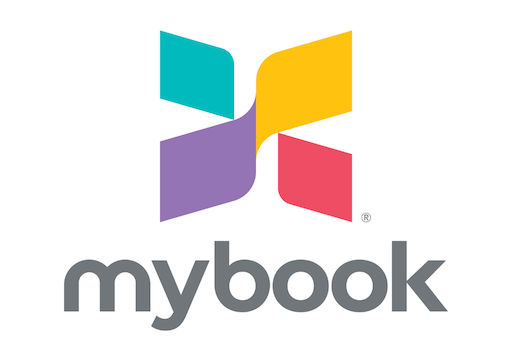
Tell Digital Marketing Requirements: Essential Steps for Success
Tell digital marketing requirements as a client is one of the most vital steps to ensure your marketing efforts yield fruitful results. It involves understanding what you need and communicating those needs clearly to your marketing team or agency. But how do you really articulate what’s essential for your digital marketing strategy? Let’s dive into the essential steps that will help you set the stage for a successful partnership.
Understanding Your Business Goals
Before you can effectively tell digital marketing requirements as a client, it’s crucial to have a firm grasp of your business goals. What are you trying to achieve? Whether it’s brand awareness, lead generation, or sales conversion, knowing your objectives will shape every aspect of your digital marketing strategy.
Let’s say you run a local bakery. If your goal is to boost in-store traffic, your marketing requirements will focus on local SEO techniques, engaging social media posts showcasing your delicious pastries, and targeted online ads that lead customers straight to your doorstep. On the other hand, if you’re an SaaS company looking to increase subscriptions, your needs may pivot toward content marketing that educates prospects about your software’s benefits.
Identifying Your Target Audience
Understanding who you’re speaking to is just as important as identifying your business goals. When you tell digital marketing requirements as a client, integrating detailed information about your target audience is essential. Consider demographics, interests, pain points, and online behavior.
Think of it this way: If you’re selling high-end skincare products aimed at millennials, your marketing strategies will differ vastly from targeting a middle-aged demographic looking for anti-aging solutions. You wouldn’t post the same message on Instagram that you’d use in an email campaign targeting a more mature audience.
Establishing a Budget
Let’s be real: budgeting can be daunting, but it’s a necessity. Once you’ve understood your business goals and audience, the next step is to determine how much you’re willing to invest in digital marketing.
Imagine you’ve identified a monthly budget of $1,500. This can guide your expectations and lead to more realistic outcomes. With this budget, you might prioritize social media ads over SEO if you’re looking for quick results, while still allocating a portion for long-term content strategy. Transparency about your budget allows your marketing team to tailor their strategies for maximum impact.
Choosing the Right Channels
In today’s digital landscape, there’s a smorgasbord of marketing channels to choose from—social media, email marketing, content marketing, and more. To effectively tell digital marketing requirements as a client, you need to indicate which channels align best with your objectives and audience.
Continuing with our local bakery example, you might opt for Instagram to visually showcase your products and reach young, food-savvy customers. In contrast, if you’re a B2B service, LinkedIn may be the optimal channel to engage other businesses.
Measuring Success Metrics
How will you know if your digital marketing efforts are paying off? This is where establishing key performance indicators (KPIs) comes into play. Be clear about the metrics you’ll use to measure success. Are you looking at engagement rates, click-through rates, conversion rates, or customer retention?
For instance, if your goal is to increase website traffic, then metrics like page views and average session duration become crucial. Providing this information allows your marketing team to adapt and tweak campaigns in real time, ensuring you’re always moving toward your objectives.
Encouraging Open Communication
Finally, maintaining an open line of communication with your marketing team is vital for success. Encourage regular updates and feedback sessions. This allows for adjustments based on what is working and what isn’t, keeping everyone on the same page.
After all, communication is a two-way street. If you’re unsure how a particular strategy is performing, ask! If something doesn’t feel right, voice it. Your insights are just as important as the marketer’s expertise.
Engaging with Your Audience
While it may not directly align with ‘requirements,’ engaging with your customer base is key to successful digital marketing. Building relationships through meaningful content and interactions creates a loyal customer base.
Think of it like hosting a party: you wouldn’t just serve food and leave your guests to their own devices. You’d engage with them, ask about their interests, and ensure they feel valued. The same goes for your digital marketing. Ensure your strategy allows for interaction and responsiveness.
In summary, telling digital marketing requirements as a client isn’t just about listing out wants and needs; it’s an intricate process of understanding your goals, audience, and the tools available to you. By taking these steps, you’re well on your way to crafting a strategy that not only meets but exceeds your expectations.
FAQs
1. What are the key components of a successful digital marketing strategy?
A successful digital marketing strategy includes clear business goals, understanding of the target audience, a defined budget, the right channels for outreach, measurable KPIs, and open communication with the marketing team.
2. How do I know which digital marketing channels to choose?
Choosing the right channels depends on your target audience and business objectives. Research where your audience spends their time and align your channels accordingly—whether that’s social media, email, or SEO.
3. How can I measure the success of my digital marketing efforts?
You can measure success through KPIs such as click-through rates, conversion rates, and engagement metrics. Establishing these metrics upfront will allow you to track progress and make data-driven adjustments.
Related Posts
Switch Lead Gen Expert: Effortless Steps for Success
In todays competitive landscape, becoming a switch lead gen expert can transform your approach to business growth. With a focus on building relationships and understanding your audience, youll discover...
Switch Instagram Consultant: Effortless Guide to Success
Are you struggling to make an impact on Instagram? A switch to an Instagram consultant could be your key to effortless success, guiding you through the ever-changing social media landscape and helping your...












